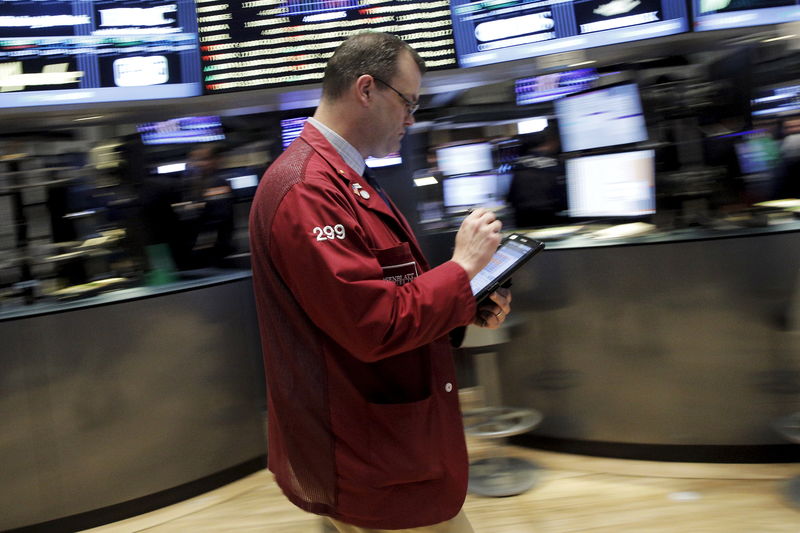This post was originally published on this site
https://i-invdn-com.investing.com/news/LYNXNPEC3O0UB_M.jpg
The Dow Jones Industrial Average fell 1.1%, 406 points, Nasdaq fell 1.5%, and the S&P 500 fell 1.5%, slipping below 4,300 for the first time since its June 9.
Signs of cracks in the U.S. consumer?
The consumer confidence index dropped by more than expected to a reading of 103.0, a four-month low, stoking concern the consumer is beginning to feel pressure from the double whammy of higher inflation and interest rates.
Consumers — whose spending has surprised to upside for months and makes up the two-thirds of the economic growth – have been shaken by ongoing rises in prices and the potential of government shutdown.
“Write-in responses showed that consumers continued to be preoccupied with rising prices in general, and for groceries and gasoline in particular,” said Dana Peterson, chief economist at The Conference Board in Washington.
Treasury yields remained at their highest level in more than decade, with the 10-year yield at close to 4.55%, after JPMorgan’s Jamie Dimon warned that the Federal Reserve could lift rates to 7%.
“I am not sure if the world is prepared for 7%,” Dimon told The Times of India in an interview. “I ask people in business, ‘Are you prepared for something like 7%?’ The worst case is 7% with stagflation.
With the Fed funds rate at 5.4%, the extra 200 basis points to push rates to 7% would “be more painful than the 3% to 5%” move,” Dimon added.
Big tech resumed its slide after brief respite on Monday as investors continue to price in the pain for growth stocks amid the prospect of higher for longer interest rate regime.
Alphabet (NASDAQ:GOOGL) fell 2% to lead big tech lower, followed by Microsoft Corporation (NASDAQ:MSFT) and Apple Inc (NASDAQ:AAPL) as higher rates make future profit appear less valuable, and the impact is particularly acute in higher-priced growth sectors including tech.
Amazon (NASDAQ:AMZN) fell more than 4% after the Federal Trade Commission filed an antitrust lawsuit against the online retailer, alleging that it has used anticompetitive and unfair strategies to illegal maintain a monopoly.
The FTC was joined in the lawsuit by 17 state attorney generals, alleging Amazon’s actions stopped rivals and sellers from lower prices, stifled competition and degraded quality for shoppers.
Amazon’s general counsel and senior vice president of global public policy, David Zapolsky, refuted the allegations against the company, saying in a statement that “the lawsuit filed by the FTC today is wrong on the facts and the law, and we look forward to making that case in court.”
Lawmakers in Washington appear to be stepping up the pace to avert a government shutdown by the Oct. 1 deadline that would force the federal government to stop non-essential operations.
The Senate plans Tuesday to vote on a bill to extend government funding for 45 days, which if passed, would then proceed to the House for Republican House of Representatives Speaker Kevin McCarthy to decide whether to bring it up for a vote.
But there isn’t a guarantee that the stopgap bill will pass the House as a group of conservative lawmakers are opposed to short-term funding extension.

